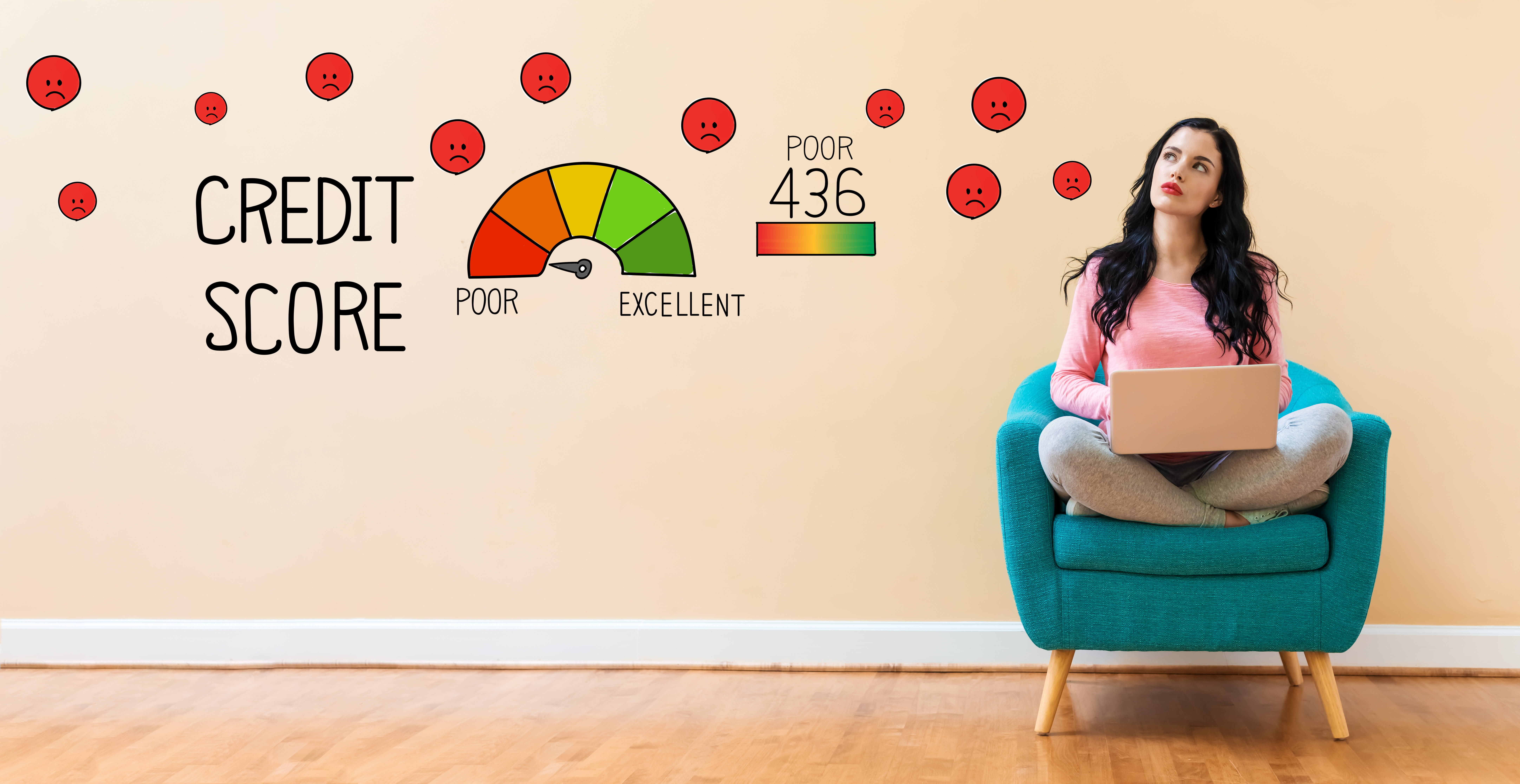What is a Bad Credit Score?
Having bad credit can impact everything from your interest rates to how much you pay for insurance premiums. Some employers even check your credit score and may be reluctant to hire you if you have a bad credit score.
You might be asking yourself “what is a bad credit score?” If you’re unsure whether your score is good or bad, keep reading to learn more about credit scores, how they are calculated, what’s good and what’s bad, and how you can start fixing your credit if you have a bad score.
What is a Credit Score and How is it Calculated?
Your credit score includes a number of different things that give lenders an idea of whether you’re a good candidate to lend to. Two of the most influential factors in your credit score are your payment history and the amount of your credit limit that you use.
Paying bills late can negatively impact your credit score. Accounts that are more than 30 days delinquent are typically reported to the credit bureaus and can ding your score. The later the payments are, the more significant the damage.
Your credit utilization also is important. Experts recommend that you should use no more than 30% of your available credit. People with the highest credit scores use much less than 30% of their available credit.
Other things that impact your credit score include the length of time you’ve had credit or your credit history. The longer the better.
Having a mix of different types of accounts is also beneficial. If you have both installment accounts, which are ones with a fixed number of equal payments, such as a mortgage or car payment, and credit card accounts, your score will generally be better.
The number of recent credit inquiries can also hurt you. If you have had numerous credit inquiries in the last year, your score might be lower.
What is a Bad Credit Score?
Now that you know what goes into your credit score, let’s talk good, fair, and bad credit scores. There are three major credit bureaus: Equifax, Experian, and TransUnion. These companies collect your credit information and record it and then sell it to lenders or others who are checking your credit.
To calculate your credit score, companies use the information from the credit bureaus to come up with a number, which is your credit score. Most creditors and lenders use the FICO scoring system, which takes data collected from the credit bureaus to generate a score.
The creditor or lender viewing your score is who determines how good or bad it is. The FICO score is simply that: a numerical score. Whoever is viewing that score decides how they will rank it and how it impacts their decisions.
Both FICO and the other company that calculates credit scores, VantageScore, have a lower limit of 300 and an upper limit of 850. Although these companies don’t issue a rating of good or bad, there are some general ranges used to categorize credit scores. For example:
- 720 and above is excellent
- 690 to 719 is good
- 630-689 is fair
- Anything below 629 is bad
If you find yourself in the bad credit score range, or even in the fair range, you are definitely going to feel the consequences of your less-than-stellar credit.
Consequences of Bad Credit
The obvious consequences of bad credit are that you are unable to get approved for loans, or if you do, your interest rate is going to be higher because the lender views you as a risky borrower.
Not only are your interest rates impacted, but you might also find that you are not able to open new credit lines. Your insurance premiums are often higher, as insurance companies view you as risky.
Utility providers and cell phone companies also might require you to put down a deposit in order to turn on your utilities or get a cell phone plan. Landlords also might check your credit, and could turn you down or require a higher security deposit.
You might even miss out on your dream job, as many employers check your credit as part of the background check process. If you have a lot of debt, you might be passed over for a government job, for example.
How Can I Fix My Credit?
So your credit is bad. Unfortunately, you are not alone. 20% of Americans have scores below 600. The good news is that if you have bad credit, all is not lost. There are steps you can take in order to fix your credit and you can start right away.
The most obvious way to improve your credit is to pay down your balances, stop using your cards or pay them off every month, and get any delinquent accounts into a positive status.
You should also try to pay off any small, lingering balances, as your credit score is impacted by how many cards have balances. Getting rid of these small amounts and then focusing on paying down the larger balances will help. If you continue to use credit cards, choose one or two of these cards that are great for rebuilding your credit to put the bulk of your purchases onto.
You should also make sure there are no mistakes on your credit report. If there are, you should address these with the credit bureaus ASAP to get them off of your credit report.
With some time and patience, it is possible to improve your credit score.
Your Next Steps
Now that you can answer the question “what is a bad credit score” you can get to work.
First things first, you need to check your credit score and pull your credit reports. You can pull your credit report for free each year from each of the three credit reporting bureaus. Check your report for any errors and map out how you are going to start paying down your debt.
You can also get your credit score for free. Many credit card companies or other lenders off this service at no charge to their borrowers. You can monitor it daily, weekly, or monthly, but keep in mind that it takes about 30 days for changes to hit your credit report, so any changes in your credit won’t show up immediately.
Learn more about your credit and how to build and repair it on our blog. Work towards having an excellent credit score and you can expect to get the best interest rates and offers from lenders.




Leave a Reply
Want to join the discussion?Feel free to contribute!